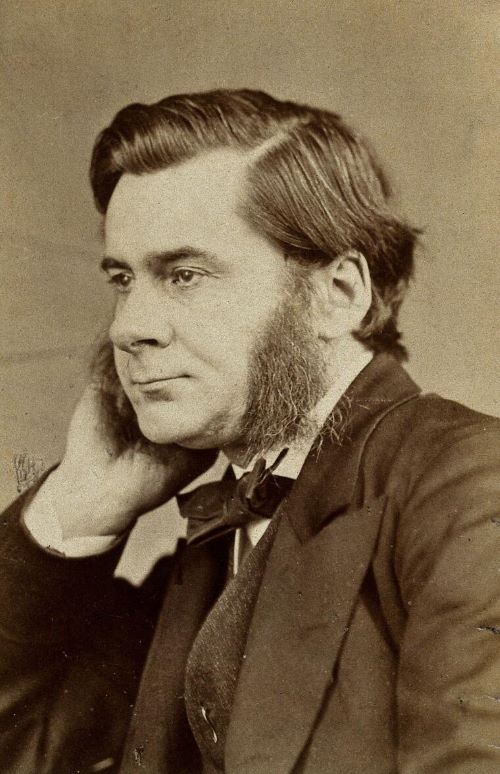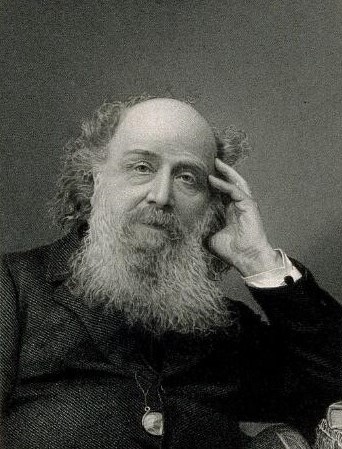- About MAA
- Membership
- MAA Publications
- Periodicals
- Blogs
- MAA Book Series
- MAA Press (an imprint of the AMS)
- MAA Notes
- MAA Reviews
- Mathematical Communication
- Information for Libraries
- Author Resources
- Advertise with MAA
- Meetings
- Competitions
- Programs
- Communities
- MAA Sections
- SIGMAA
- MAA Connect
- Students
- MAA Awards
- Awards Booklets
- Writing Awards
- Teaching Awards
- Service Awards
- Research Awards
- Lecture Awards
- Putnam Competition Individual and Team Winners
- D. E. Shaw Group AMC 8 Awards & Certificates
- Maryam Mirzakhani AMC 10 A Awards & Certificates
- Two Sigma AMC 10 B Awards & Certificates
- Jane Street AMC 12 A Awards & Certificates
- Akamai AMC 12 B Awards & Certificates
- High School Teachers
- News
You are here
Quotations in Context: Sylvester
“The early study of Euclid made me a hater of geometry.”
In 1869, James Joseph Sylvester was selected to serve as President of the Mathematical and Physical Sciences Section of the British Association for the Advancement of Science. Although his Presidential Address to the section meeting touched on a variety of issues, the main body of the speech was a rebuttal of a sequence of characterizations of mathematics published by Thomas Huxley that same year. In an article entitled “Scientific Education: Notes of an After-Dinner Speech,” published in MacMillian’s Magazine, Huxley emphasized the importance of observation in scientific training. By way of contrast, Huxley briefly described his view of mathematical training:
Mathematical training is almost purely deductive. The mathematician starts with a few simple propositions, the proof of which is so obvious that they are called self-evident, and the rest of his work consists of subtle deductions from them [Huxley 1869b, p. 182].
Similarly, Sylvester highlighted Huxley’s statement from “The Scientific Aspects of Positivism,” published in The Fortnightly Review, that mathematics is “that which knows nothing of observation, nothing of experiment, nothing of induction, nothing of causation” [Huxley 1869a, p. 667].

Photograph of Huxley by Elliott & Fry. Public domain, courtesy of Wellcome Collection.
Sylvester argued that Huxley could not be further from the truth. He pointed out that great mathematicians such as Lagrange and Gauss had emphasized the importance of observation in mathematics. He provided a list of mathematical ideas that originated from experiment; for example, how the motion of compound pendulums led to Sturm’s theorem regarding the number of unique real roots of a polynomial. Sylvester argued that “observation, divination, induction, experimental trial, and verification” [Sylvester 1908, p. 657] are all important aspects of mathematical training and discovery.

Stipple engraving of Sylvester by G. J. Stodart. Public domain, courtesy of Wellcome Collection.
Despite their difference of opinions on the nature of mathematics, Sylvester agreed with Huxley that experimental science should be introduced in schools, and he expressed a belief that mathematics could benefit from being taught in connection with science:
I think that that study [of natural and experimental science] and mathematical culture should go on hand in hand together, and that they would greatly influence each other for their mutual good. I should rejoice to see mathematics taught with that life and animation which the presence and example of her young and buoyant sister could not fail to impart, short roads preferred to long ones, Euclid honourably shelved or buried “deeper than did ever plummet sound” out of the schoolboy’s reach [Sylvester 1908, p. 657].
Following the response to Huxley, Sylvester touched on a variety of topics, but toward the end of the address he discussed the connections between arithmetic, algebra and geometry, saying that they “are constantly becoming more and more intimately related and connected by a thousand fresh ties” [Sylvester 1908, p. 659]. Sylvester particularly emphasized the importance of geometry, proclaiming the “wonderful influence geometry has exercised” [Sylvester 1908, p. 659] over modern mathematics. Having praised geometry as a general topic, Sylvester responded to those who may have been dismayed by his dismissal of Euclid from the curriculum, and it is in this context that the quotation at the head of this column appeared:
The early study of Euclid made me a hater of Geometry, which I hope may plead my excuse if I have shocked the opinions of any in this room (and I know there are some who rank Euclid as second in sacredness to the Bible alone, and as one of the advanced outposts to the British Constitution) by the tone in which I have previously alluded to it as a schoolbook; and yet, in spite of this repugnance, which had become a second nature to me, whenever I went far enough into any mathematical question, I found I touched, at last, a geometrical bottom [Sylvester 1908, p. 660].
From the material above, it can be seen that the isolated quotation for this column is both accurate and misleading. It seems quite accurate in portraying Sylvester’s actual feelings toward Euclid’s Elements, in particular to the use of that work as a geometry textbook. However, whatever his early feelings about geometry may have been, the context of the address makes it apparent that in later life he was clearly no longer a “hater” of geometry.
References
Huxley, Thomas. 1869a, June 1. The Scientific Aspects of Positivism. The Fortnightly Review 11(30): 653–670.
Huxley, Thomas. 1869b, June. Scientific Education: Notes of an After-Dinner Speech. Macmillan’s Magazine 20(116): 177–184.
Sylvester, James Joseph. 1908. The Collected Mathematical Papers of James Joseph Sylvester. Vol. 2. Cambridge: Cambridge University Press.
“Quotations in Context” is a regular column written by Michael Molinsky that has appeared in the CSHPM/SCHPM Bulletin of the Canadian Society for History and Philosophy of Mathematics since 2006 (this installment was first published in November 2007). In the modern world, quotations by mathematicians or about mathematics frequently appear in works written for a general audience, but often these quotations are provided without listing a primary source or providing any information about the surrounding context in which the quotation appeared. These columns provide interesting information on selected statements related to mathematics, but more importantly, the columns highlight the fact that students today can do the same legwork, using online databases of original sources to track down and examine quotations in their original context.
Michael Molinsky (University of Maine at Farmington), "Quotations in Context: Sylvester," Convergence (February 2023)




